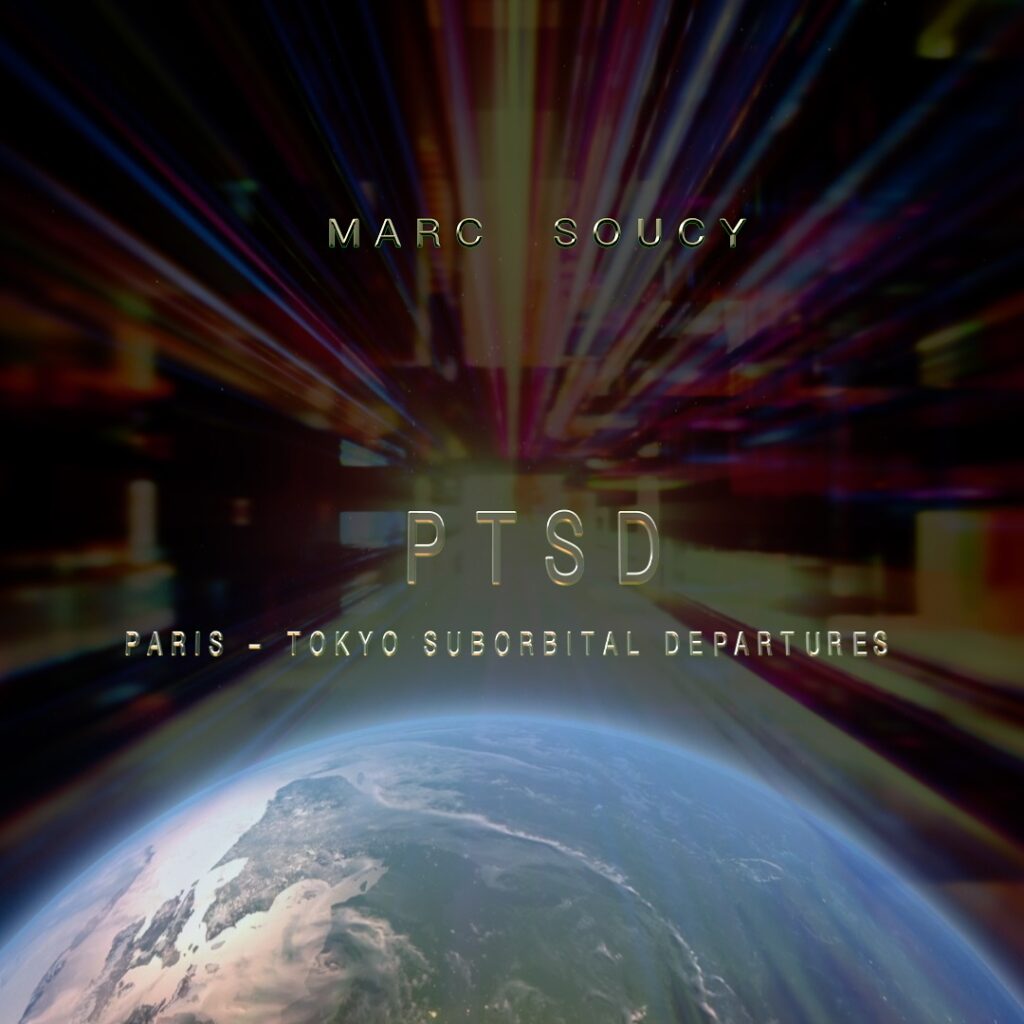
From its first pulsing note, “PTSD: Paris-Tokyo Suborbital Departures” sets a tone that is strange, sleek, and haunting. Marc Soucy doesn’t just compose music—he constructs environments. This track pulls listeners into a quiet tension, where metallic drones and electronic whispers mimic the feeling of moving through unfamiliar airports or distant galaxies.
What gives the piece its edge is the subtle way it builds. There’s no dramatic drop or soaring chorus. Instead, Soucy uses repetition and carefully chosen textures to stretch time. Synths oscillate in and out of focus, and the occasional robotic vocal blends into the landscape rather than leading it. It feels like you’re inside a memory being replayed with faulty equipment.
Instead of leaning on melody, the piece explores rhythm and space. Its structure feels circular, like boarding a flight that never quite lands. There are no lyrics, but it doesn’t matter. The composition speaks fluently through pacing, pitch, and negative space. Every sound is placed with precision.
The strength of the track lies in its ability to communicate without traditional hooks or instrumentation. It creates tension, suggests a narrative, and leaves you thinking about it long after it ends. There’s something deeply reflective here, something about speed and stillness, about what it means to leave something behind.
Marc Soucy proves that storytelling in music doesn’t require words. His work is smart, strange, and full of emotion for those willing to listen closely. “PTSD” offers no easy answers, but it gives you space to ask the right questions.
